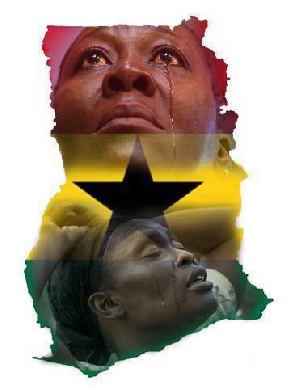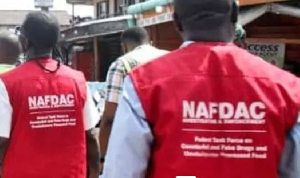...no matter who wins power in the 2016 election
Ghanaians are getting ready to go for yet another popular election and are therefore culturally exposed to very attractive but ambiguous manifesto (promises) statements. Indeed, as election culture teaches, parties to the election present their manifestoes to the electorates and to some extent, electoral choices are made.
There’s a saying that if you nurse a monster, it will grow and when it does, it will devour you. I believe that this adage assumes that it is not the nature of monsters to grow around its preys or the vice versa; and likewise, it is not the nature of man to live with filth. I am sure that otherwise, we don’t have to bath and/or when we buy a sachet of water, we would have to drink it and chew the rubber with it.
In this endeavour, may I present to you filth, also called rubbish. A threat that we have meticulously sown, deliberately cultivated and nurtured, and although this menace has reached its harvest stage, we are not cutting down the ripped tree of filth but again sowing, cultivating and harvesting at different instances and at different cycles.
To the government
As part of the social contract that underpinnes the very essence of a government, every government owes to its people a duty to ensure that there is a clean and a sustainable environment for habitation. Indeed, from independence to the year 2000, whatever policy that was put in place vis-à-vis sanitation has proven to be a failure at least from an implementation point of view and I think that is enough punishment endured by all of us.
From then on, we have seen another sixteen years of an unpardonable neglect for the already vague and shallow sanitation policies that have a deficiency or are suffering from the nutrient called implementation. I have taken the trouble to study the manifestoes of the so called major political parties in Ghana and I am sorry to announce to you that Ghana will wallow in filth even after 2020 no matter who wins the election between the two. In page 64 of the NDC Manifesto, they claim to have “successfully executed the National Sanitation Day exercise throughout the country”, well I have no clue what they are talking about, or do you?
If upon this massive filth that has plagued this country through and through and the lackadaisical attitude of citizens to partake in the NSD exercise is called successful, then, well, what can I say? But have you realised what happens after the NSD is observed? Towns smell as a result of solid wastes that are placed by gutter edges and road pavements.
In the 2012 manifesto of the NDC, they said they will establish the National Sanitation Authority (NSA), however, in page 64 of their 2016 manifesto, they claim to “Create a National Sanitation Authority) again. As part of their commitment, they will “Strive to end open defecation by 2021, how? NO ANSWER could be found in the manifesto. No need to lambast the content of the so called manifesto because it never answers the how to solve the problem.
In 2013, the Strategic Youth Network for Development wrote a piece on the Modern Ghana platform where they criticised the revised so called Environmental Sanitation Policy of Ghana. In that piece, it reads: “while policy makers are seen to be actively working towards a common solution, we contend that the content of the revised policy is weak”. Generally speaking, the NDC manifesto is so vague that it doesn’t answer the desire for clean environment.
What this in effect means is that there is no clear cut policy on how the NDC intends to solve the issues of choked gutters, nor is there any policy that is geared towards controlling our dirty roads and environment that is filled with sachets, tins, cans and other mosquito breeding agents, worse, it lacks citizen participation.
Could the New Patriotic Party government be our solution? And the answer is NO. So why am I addressing them? It’s because they have been in government before and they intend to be there again or at least their chances are higher than the others. Generally speaking, there is no clear cut policy on how to deal with the pertinent issues I raised in the previous paragraphs. There is no solution on blocked gutters and there is no comprehensive action plan that would involve a citizen approach and participation into dealing with the issues of sanitation.
To The People
Indeed, the implementation of the National Sanitation Day in itself shows that we have failed and/or we did something wrong somewhere. NSD is therefore a reactionary approach –not holistic or pragmatic. But let me address the people in this regard – it is in Ghana that someone drops waste on the ground or in the gutter and puts the blame on the government for the lack of performance in the area of sanitation.
One will admit that our gutters are all choked with rubbers, tins, cans, human excreta, I’m sure you know the others, and so liquid waste don’t get to flow. But that’s fine. However, the danger is that, in the unfortunate event of flooding, the rain water won’t pass through my mouth nor will it pass through my nose and that is good because I still get to chew or breath. The bad news however is that if you are lucky, it will locate your house and if you aren’t lucky, it will pay you an unwelcome visit in your room and spend some quality time with you and leave at will, changing your sleeping place - either in another house at a different area or in the grave.
Sanitation is a problem that I think should mostly start with the people and that means a culture that observes proper disposal of waste which will make government’s role be easy because at the end of the day, government officials will not be victims of cholera and flooding. We must understand that we are the ones at the forefront of the problems that emanate from poor sanitation, I mean the one we nursed ourselves and so when it reaches a destructive stage, we receive that blessing in bad faith. Healthwise, Accra is so close to a time bomb.
Going back to the Strategic Youth Network for Development piece, some of the recommendations they proposed borders around capacity development, information, education and communication, research, monitoring and evaluation. Details are in the article titled ‘Environmental Sanitation Policy of Ghana’.
Let us all stop the blame game and understand that we have failed this innocent state. If Ghana were to be a human being, she should by all means be at the surgical ward by now in a critical condition. Let’s fight sanitation with the understanding that owe this innocent woman who has decided to accommodate us, the individual and collective responsibility of ensuring that she is always clean and that, fellow Ghanaians, will help.
The writer Michael Tawiah Bortei, is a journalist and a social commentator. He can be reached at mickin1988@gmail.com
Opinions of Sunday, 23 October 2016
Columnist: Bortei, Michael Tawiah















